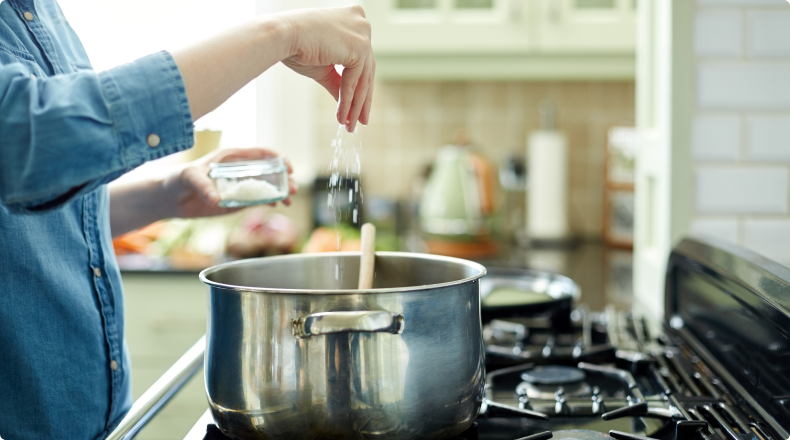Gas Equipment and Appliance Safety
Rhode Island EnergyStay informed and safe
Follow these tips for proper equipment maintenance and learn what to do if your equipment malfunctions or is used improperly.

Generators
- Always operate your generators outdoors
- Keep generators away from doors, windows, and vents that could allow carbon monoxide to come indoors
- Before operating generators, shut off the main breaker located in the electric service panel
- Avoid fire or explosion by refueling the generator in a well-ventilated area and avoid spilling fuel on hot engine parts
- Change the oil periodically or after several hours of operation
- To prevent clogs, drain the fuel completely or treat it with a fuel stabilizer if the engine is idle for a long time
- Periodically start the generator to make sure that the unit starts easily and that all components are working
- Check that your electrical cords are clean, neatly coiled up, and regularly inspected for damaged insulation and connectors
- Store surplus gasoline in approved containers. Remember that a generator capable of supplying the electrical needs of a household can consume up to 25 gallons of fuel in a 24-hour period
- Consult a professional before purchasing a generator to determine your home’s power requirements, address safety concerns, and perform installations for you
Meters
Although we’ve automated the meter reading process for most of our customers, it’s still important to keep your meters unobstructed.
Outdoor meters:
- Be sure to keep your meter’s valve and vent clear of dirt, debris, ice, and snow. Use a broom to brush any snow or icicles off without damaging the pipes or valves
- Do not shovel snow up against the meter or vent pipe
- Use a broom to remove icicles from overhead eaves and gutters to ensure that dripping water does not splash and freeze on the meter or vent pipe
- Mark the location of natural gas equipment so snowplow operators can avoid damaging meters, outside gas risers, and vents mounted outside buildings when piling snow
- Ensure your meter can be accessed, and be cautious with the placement of landscaping and outdoor structures
- Be sure your meter is not touching the wall of the building and has at least six inches of clearance below
Indoor meters:
- Keep hazardous or flammable materials away from meters and equipment
- Don’t hang anything on your gas pipes
- Keep obstructions away from any indoor meters
- Be sure you can easily access your meter in case of emergencies
Space heaters
- Have your gas heater and venting system professionally installed
- Be sure to have proper ventilation and follow the manufacturer's instructions
- Have your meter inspected according to local codes
- Keep gasoline and other flammable liquids and materials away from sources of ignition
- Be sure space heaters are in good condition
- Keep flammable items at least three feet away from the heat source
- Don’t drape clothes over a space heater to dry
- Don’t leave children or pets alone in the room where a space heater is running
- Be sure you have a working smoke and carbon monoxide detector on every floor of your home
- Place heaters on a hard, level, non-flammable surface and away from any water
- Purchase a heater with the seal of a qualified testing laboratory
- Plug the heater directly into a wall outlet — don’t use extension cords or power strips
- Don’t overload electrical circuits
Water heaters
It doesn’t take long to get burned or scalded from hot water. Water at 140 degrees Fahrenheit can cause a serious burn in just three seconds. Thinner skin burns faster, so children and older adults are at higher risk. The U.S. Consumer Product Safety Commission (CPSC) advises everyone to lower their water heaters to 120 degrees Fahrenheit. This helps prevent accidents, save energy and money. Follow these tips to remain safe:
- Always set your water heater to a safe temperature
- Check water temperature before placing a child in the bathtub
- Never leave a child alone or with other young children in the bathtub
- Have your water heated inspected by a professional
Appliance connectors
- Hard pipe connectors should be used on all stationary appliances, such as house heating boilers, furnaces, and water heaters
- Flexible gas pipe connectors should be used only on moveable appliances, such as dryers or ranges
- No more than one flexible connector should be used per appliance — multiple flexible connectors should never be joined together
- Connectors should never exceed six feet (1829 mm) in length
- Connectors should never be concealed within (or extended through) walls, floors, partitions, ceilings, or appliance housings
- Be sure to have a licensed professional install an AGA/CSA approved flex pipe connection
- Do not use uncoated brass connectors as these are hazardous— check appliances for uncoated brass connectors if they are more than 20 years old
- Have a qualified contractor identify and replace any uncoated brass connectors
- After disconnecting gas appliances, always remove gas connectors and plug and cap the fuel line


Smell gas or suspect a gas leak?
Natural gas smells like rotten eggs or sulfur. If you suspect a leak, go outside and call 911 or 1-800-640-1595.